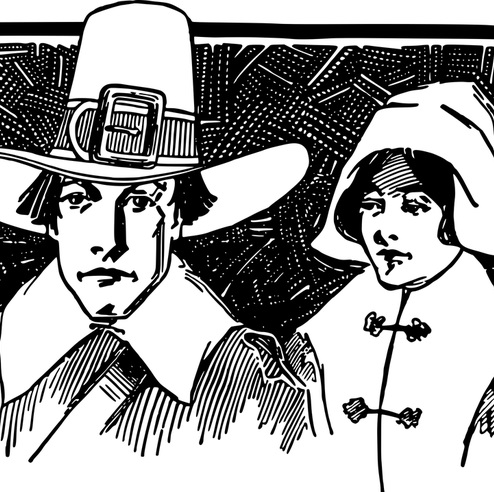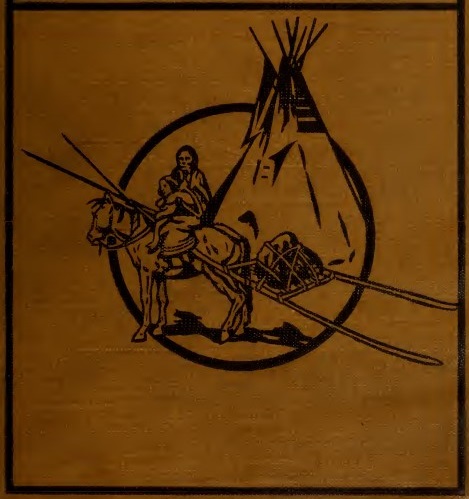
by Richard Subber | Jan 7, 2025 | American history, Book reviews, Books, Democracy, History, Politics, Revolutionary War
…John Adams,
in the thick of it…
Book review:
John Adams
by David McCullough (1933-2022)
Simon & Schuster, New York, 2001
751 pages
Maybe you’re like me. Maybe you don’t think biography is the best way to do history. David McCullough’s Pulitzer Prize-winner is a reason to change your mind a bit.
John Adams, simply, is a really good book. McCullough helps you to warm up to this American icon and to his personal experience in leading the American Revolution and the first formative years of the American republic.
Adams, our first vice president and second president, was among the few who were in the thick of it from the beginning, and he never shrank from doing what he expansively viewed as his duty to his new country.
McCullough’s prose is a delightful experience for the serious historian and for the armchair dabbler who likes a good read. From cover to cover, John Adams is a lush, genuine presentation of a man, his loved ones, his career, his commitment to do good works and his never-flagging appreciation that the object of government should be to do the people’s business and make possible
* * * * * *
Book review. Copyright © Richard Carl Subber 2025 All rights reserved.
O. Henry’s “The Gift of the Magi”
“…two foolish children…”
–
As with another eye: Poems of exactitude with 55 free verse and haiku poems,
and the rest of my poetry books are for sale on Amazon (paperback and Kindle)
and free in Kindle Unlimited, search Amazon for “Richard Carl Subber”
* * * * * *

by Richard Subber | Dec 15, 2024 | Book reviews, Books, History, Power and inequality
“. . . lions led by donkeys . . .”
Book review:
The Donkeys
by Alan Clark
London: Pimlico, 1961, 1994
216 pages
Clark tells the terrible story of high-level British incompetence in leading massed armies in combat with everybody using terrifying weapons.
At the outbreak of World War I, Britain had a relatively small professional army (247,000 men). Nearly half of them were stationed overseas throughout the British Empire.
Thus, on the home island in August 1914, Britain’s generals mustered about 150,000 men to be the British Expeditionary Force (BEF) that crossed the English Channel, to join the French in fighting the German attackers.
Within three months, that half of Britain’s professional army was gone. Most of the men in the BEF were dead. Their generals must take much of the blame.
As the horrific trench warfare became the hallmark of World War I, a German general, Erich Ludendorff (1865-1937), had a disdainful conversation with a fellow officer, Carl Hoffmann (1869-1927):
Ludendorff: “The English soldiers fight like lions.”
Hoffman: “True. But don’t we know that they are lions led by donkeys.”
p.s. Britain’s total WWI casualties: 673,375 dead and missing, 1,643,469 wounded
* * * * * *
Book review. Copyright © Richard Carl Subber 2024 All rights reserved.
Book review: Shawshank Redemption
A world I do not want to know…
by Stephen King
–
Writing Rainbows: Poems for Grown-Ups with 59 free verse and haiku poems,
and the rest of my poetry books are for sale on Amazon (paperback and Kindle)
and free in Kindle Unlimited, search Amazon for “Richard Carl Subber”
* * * * * *

by Richard Subber | Nov 23, 2024 | Book reviews, Books, Joys of reading, Language, Power and inequality
men are not women…
Book review:
A Room of One’s Own
by Virginia Woolf (1882-1941)
San Diego, CA: A Harvest/HBJ Book, 1929, published 1957
118 pages
Virginia Woolf was no stranger to controversy, in her writing and in her life. In A Room of One’s Own, she wrote: “…when a subject is highly controversial…one cannot hope to tell the truth. One can only show how one came to hold whatever opinion one does hold.” (p. 4)
Woolf refers to “men who have no apparent qualification save that they are not women” (p. 27) and she quotes fellow writer Samuel Butler (1835-1902): “Wise men never say what they think of women.” (p. 29)
A so-called Modernist, she wrote: “Women have served all these centuries as looking-glasses possessing the magic and delicious power of reflecting the figure of a man at twice its natural size.” (p. 35)
Even this short work is longer than it needs to be. Woolf’s prose just gushes with energy and insight and realistic gloom. One wonders whether a man has ever written such words.
Woolf claims that a writer needs “a room of one’s own.”
I think a writer can do very well indeed by making a space in which to write,
a space in the mind or somewhere in the house.
* * * * * *
Book review. Copyright © Richard Carl Subber 2024 All rights reserved.
The “dime novels” in the Civil War
Think “blood-and-thunder”…
–
In other words: Poems for your eyes and ears with 64 free verse and haiku poems,
and the rest of my poetry books are for sale on Amazon (paperback and Kindle)
and free in Kindle Unlimited, search Amazon for “Richard Carl Subber”
* * * * * *

by Richard Subber | Oct 26, 2024 | American history, Book reviews, Books, History, Power and inequality
…they readily went to war…
Book review:
Mayflower:
A Story of Courage, Community, and War
by Nathaniel Philbrick (b1956)
New York: Viking, The Penguin Group, 2006
461 pages
Philbrick offers his usual compelling narrative in Mayflower.
It becomes clear rather quickly that he’s not telling the elementary school version of the Pilgrims and Plymouth Rock and the “first Thanksgiving” that you may remember from your childhood.
The Pilgrims—the Separatists, as they named themselves—didn’t come to North America to establish religious freedom. They were escaping from limitations on their religious freedom that they had endured in England, and later, to some extent, in Holland. As the years went by in Plymouth and the Massachusetts Bay colony, they certainly did not extend any tolerance of religious freedom to those Europeans and Native Americans who held different religious beliefs.
The Pilgrims were not simply a happy, peaceful people. They readily went to war with the Indians, in both defensive and offensive campaigns.
Many of the Pilgrims suffered gruesome physical privations and many of them died soon after arriving in what greedy European promoters liked to call The New World.
If you’re thinking how wonderful it would have been to be a Pilgrim in Plymouth in 1620, think again.
* * * * * *
Book review. Copyright © Richard Carl Subber 2024 All rights reserved.
–
Above all: Poems of dawn and more with 73 free verse poems,
and the rest of my poetry books are for sale on Amazon (paperback and Kindle)
and free in Kindle Unlimited, search Amazon for “Richard Carl Subber”
* * * * * *

by Richard Subber | Sep 28, 2024 | American history, Books, History, Power and inequality
not what you learned in school…
Book review:
Facing East from Indian Country:
A Native History of Early America
Daniel K. Richter (b1954)
American historian, a Pulitzer Prize finalist
Cambridge, MA: Harvard University Press, 2001
You can count on Richter to provide a full course meal of insights and commentaries and knowledge about the original peoples of North America.
Dig in to Facing East from Indian Country to learn about how the Indians felt and what they understood about the Europeans who invaded their lands.
Nearly all of what we know about the Indians in pre-colonial and colonial times was written down by Europeans, but Richter is dedicated to discerning the Indians’ meaning, intent and recognition from the contexts and styles of those accounts.
This is not the American history you learned in school.
* * * * * *
Book review. Copyright © Richard Carl Subber 2024 All rights reserved.
Book review: Shawshank Redemption
A world I do not want to know…
by Stephen King
–
Seeing far: Selected poems with 47 free verse and haiku poems,
and the rest of my poetry books are for sale on Amazon (paperback and Kindle)
and free in Kindle Unlimited, search Amazon for “Richard Carl Subber”
* * * * * *

by Richard Subber | Sep 22, 2024 | Book reviews, Books, History, Human Nature, Power and inequality, World history
not everything is vanity
Book review:
The Bombing of Auschwitz:
Should the Allies have Attempted It?
Michael J. Neufeld and Michael Berenbaum, eds.
New York: St. Martin’s Press, 2000
350 pages with extensive notes, bibliography, and index
The Bombing of Auschwitz: Should the Allies have Attempted It? is a retrospective, somewhat repetitive but broadly didactic selection of 15 arguments for and against the bombing of Auschwitz, with more than 40 primary source documents.
You’ll learn a lot about the terrible dilemma that the Allies faced—and some of them tried to ignore—during World War II. If the Allies had tried to bomb the crematoria, would Jewish lives have been saved? At what cost to the overall war effort?
Neufeld and Berenbaum offer 15 points of view, but, of course, the questions can’t be answered with full confidence.
Sadly, we can’t re-do the solitary track of history.
* * * * * *
Book review. Copyright © Richard Carl Subber 2024 All rights reserved.
Book review: Lord of the Flies
Never more relevant…
by William Golding
–
As with another eye: Poems of exactitude with 55 free verse and haiku poems,
and the rest of my poetry books are for sale on Amazon (paperback and Kindle)
and free in Kindle Unlimited, search Amazon for “Richard Carl Subber”
* * * * * *





